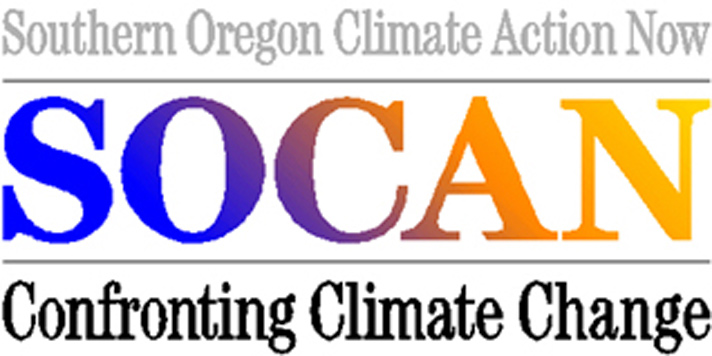To many Rogue and Applegate Valley residents, smoke has been the bane of the 2018 summer. To many Southern Oregonians, wildfire risk has been equally or more threatening. While there has been an abundance of opinion in the local media about the topic, beyond passing mention, little serious discussion of the climate connection has been offered.
At its monthly general meeting on October 30th at 6:00 pm at the Medford Public Library, Southern Oregon Climate Action Now will explore the climate connection in a program entitled: “Forests and Fire: The Climate Conundrum.”
The 70-80-year human life span imposes on us a limited sense of history; the result is blinders concealing what happened before. Long-time residents therefore tend to think that the over-arching trend is one of increasing fire risk, even though this is a relatively recent phenomenon. Prior to fire suppression in the early – mid 1900s, the fire return interval was shorter than today, while fires burned more acres and more biomass. We will explore the evidence suggesting that climate change is a powerful driving force behind the increasing fire risk we have been experiencing in Southern Oregon and will discuss how global warming is threatening the composition of our forests as critical species are compromised by the climate we now enjoy and will probably experience in the future.
Since little attention is usually paid to the carbon balance of our forests and the role of forests in sequestering and storing carbon, we will explore what the evidence tells us about carbon storage in our forests and how effective they can be at mitigating climate change by storing carbon versus how destructive they can be if the carbon flux is ignored.
The program will feature SOCAN co-facilitator Dr. Alan Journet, and Special Guest KS Wild Executive Director Joseph Vaile who will offer insights from the recent KSWild report: “Your Climate Refuge: hotter, drier, no less wild.” Of that report, Vaile notes: “We recently looked at all the research on how to best adapt our forests to climate change. We know what we likely need to stay focused on to help prepare for the changes that we are already experiencing.”
